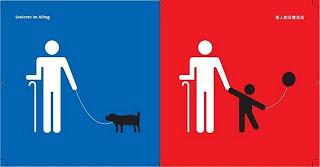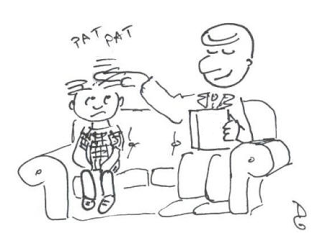 Well, it finally had to happen, a blog post about the treatment of dogs in Korea. I have been trying to avoid it as it is just so obvious, but I have touched on the subject briefly in a few blogs already.
Well, it finally had to happen, a blog post about the treatment of dogs in Korea. I have been trying to avoid it as it is just so obvious, but I have touched on the subject briefly in a few blogs already. Due to an interesting disagreement with a reader of my blogs I thought it would be wise to spend a little more time and effort on the subject.
I have always argued that dogs are something special and that we have a deeper relationship and connection with them than any other animal and this is precisely the reason I find the treatment of our best friends in the animal world so abhorrent in Korea. There is a growing body of evidence that suggests that there is indeed a close connection between us.
Very briefly, I will describe some of the problems involving dogs in Korea. Everyone, I dare say, knows that some Korean people eat dogs, but it is not the killing of them for food that is the biggest evil, it is the care of them while they are alive that leaves little to be desired.
In the dog meat trade they have a reputation for beating or hanging dogs to death, slowly and painfully because they feel that the adrenalin produced by the stress makes the meat more tender and delicious. Many also spend most of their lives rotting away in the filth and squalor of their own and other dogs feces and urine, tightly packed into cages. This is all illegal, but the laws are rarely enforced.
Outside of the dog meat trade, unless they are small dogs - which are pampered house pets with often coloured paws, ears, and tails - a dog can look forward to a life sitting outside of the house, tied up on a small leash and rarely, if ever, let off it in all weathers. I am fairly confident that almost every foreigner living in Korea will have seen examples of this, it is extremely widespread.
In my post on abortion in Korea, I made a judgment about Korean culture partly based on its treatment of dogs, which was that they had a lower respect for life generally than in Western culture (bear in mind that I do realize that all individuals are different and that there are many Westerners that have less respect for life and dogs, I am merely commenting on general observable trends I have noticed). This does not mean that I do not think Korean culture has no respect for life, of course it does.
What I do regret about that particular post is not the conclusions but the fact that I did not explain fully where I thought attitudes to life, abortion and the treatment of dogs came from. I think this made the post seem overly judgmental and lacking in empathy and understanding of their situation. The reader I mentioned earlier quite rightly pointed to an important point that I failed to include.
 It has only really been about 30 or 40 years since Korea has been a developed nation and not in the midst of stark poverty. The change in the country's fortunes is unlike any other country in history and there are bound to be issues involved with it.
It has only really been about 30 or 40 years since Korea has been a developed nation and not in the midst of stark poverty. The change in the country's fortunes is unlike any other country in history and there are bound to be issues involved with it. When we talk of Western culture we must realize that we have lived in relative affluence for much longer, and the higher levels of our society have had the means to live comfortable lives for hundreds of years. This makes thinking about morals in detail much more possible and it makes treating others around us with affection a lot easier, whether they are human or not. Even in the West today, poverty is obviously related with higher rates of crime and animal cruelty. Morals are not exclusively a luxury of people who can afford them, but it sure helps.
If you can't scrape enough food together to feed your family, you are hardly going to worry about the moral value of animals, and if any of us were in that position we would kill dogs and eat them if they couldn't help us find food in other ways. This is exactly the situation as it was in Korea, and not that long ago. There are probably many people alive today who faced that level of poverty in this country and in North Korea (although it is hard to know exactly what is going on there) this problem still exists. North Korea can help us paint a picture of how the South once was.
This extreme need may have even reinforced their already ingrained culture of the group, helping each other survive (mainly family), and may also reduce the thought of welfare of outsiders, again whether this be animal or human because they had enough to worry about keeping themselves fed and warm. Within the group or family unit the value of life is as high as anywhere and any culture, it is outside of the group that I am really arguing about.
It is difficult to say these things without sounding rather blunt and harsh but our own culture can be no better, as the bloody history of Western Europe shows. We will have no equal in the level of cruelty our ancestors reaped on animals and people, and the sheer enjoyment they experienced from it.
For example, medieval European crowds used to gather at such wonderful spectacles as bear baiting - tying a bear to a post and unleashing a pack of dogs to see which would tear each other apart first, which unfortunately still occurs in many countries - and cat burning - where cats were bundled together in a bag and slowly burned over a fire while crowds of people laughed at the shrieks of pain as the animals were roasted alive. People still enjoy cock fights and dog fights in the nasty little underbelly of our culture and it also is quite observable just how much violence is present in Western movies compared to in the East.

Europeans also perfected the art of torture, especially the Spanish Inquisition. It took hundreds of years to combat these ways of thinking with gradual moral progress. The Korean 'Civilizing Process' has not had nearly enough time to seep into the culture as a whole. (Note: the term 'Civilizing Process' and descriptions of torture in the last couple of paragraphs are sourced from Steven Pinker's book 'The Better Angels of Our Nature').
Right, back to dogs. Western cultures, I believe, amplify the connection between dogs and people. We are individualistic and because of this I think Western people put themselves in the position of other individuals a little more naturally. We humanize dogs because of this.

West in blue, East in red.
Dogs as companions also have more relevance to us. In Korea, when people are older, they tend to have a closer relationship with grandchildren and therefore the whole family. Family groups usually stick together a little better, at least that is my observation. In the West, dogs are often seen as a friend for older people and take the place of family members when they cannot be around.Westerners are also more prone to live alone generally, making the dog more likely to give good company. Even attitudes toward cleanliness in our houses may make it easier for us to welcome dogs into our lives. Most Koreans I have met do not like the idea of dogs dirtying the house with hair, mud, and dirt from outside.
It could also be that the topography of Korea has not helped in building a bond between man and dog. With such a mountainous country Korea does not have the perfect kind of land for rearing animals on wide open stretches of pasture, because of this they may have not had much need of dogs except as guard dogs and as early warning systems of intruders - this still appears to be their main job, tied up outside in front of houses.
The fact is that if we had grown up in Korea, with a Korean family and friends, our attitude to dogs would be exactly the same. This makes it impossible to characterize Koreans as evil or inhumane, even if that is the first thought that leaps into our minds when we see what looks like the abuse of our furry friends.
It is so easy to look at controversial practices in other cultures and be so shocked or even horrified about what is happening and demonize those that are doing it. If I, in this post or any other, seem like I am doing this, it is not my intention but I think it is important to speak out about things and being offensive appears to be a fiendishly easy thing to do on touchy subjects like culture, race, and religion.
People will cling on to traditions of the past even if they are bad ones, calling them out is the only way forward and having some understanding helps cushion the blow that these criticisms have. Perhaps it was this understanding and sensitivity that I was missing on my post on abortion and the value of life in Korea.

I think it is a legitimate exercise to judge some aspects of culture good or bad and this can be helpful in identifying which practices should be encouraged and discouraged with your own culture. Saying a whole culture is good or bad, right or wrong, however, is never helpful.
When it comes to their current treatment of dogs specifically, I am judging it as bad and I claim the right to say it. Too many people have almost no thought for the suffering of the animal and it is a sad sight to see. This does not mean that I do not understand why they behave this way or judge the culture as a whole as wicked or inferior. Indeed, in many of my blog posts I have highlighted many other aspects of Korean culture that are superior to our own. It is a question of give and take, but taboos about what we can say or write about are still very relevant, and anybody who questions the practices of other cultures, especially anything to do with morals and ethics, better be prepared to take some abuse for it.
Sources: Again an update to prove I am not making this stuff up about the killing of dogs in Korea, but my sources were Korean people that still admit that it goes on.
http://www.idablog.org/category/korean/
http://www.animalcrueltyworldwide.com/Animal-Cruelty-In-Korea-1/Animal-Cruelty-In-Korea-1.1.html
http://www.change.org/petitions/south-korea-stop-animal-abuse-in-south-korea
http://asiasentinel.com/index.php?option=com_content&task=view&id=1151&Itemid=194
http://www.youtube.com/watch?v=2zXXXlWMdCE (search on youtube for dog cruelty in Korea: warning, videos have the potential to upset people)
